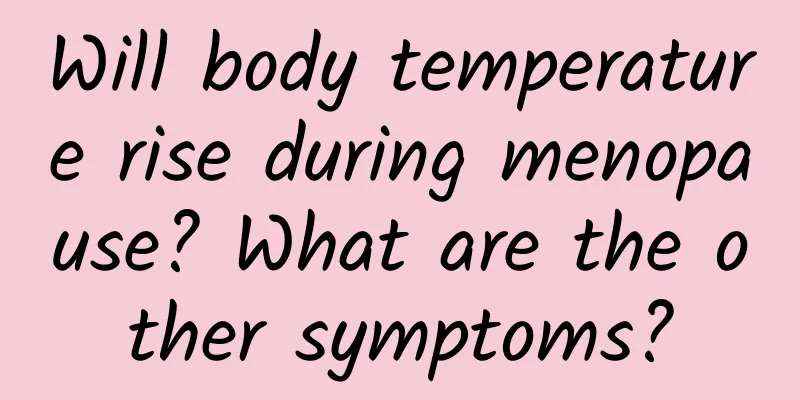Will body temperature rise during menopause? What are the other symptoms?

|
Menopause is a necessary process for women. Generally, the body temperature will not rise when entering menopause. The main symptoms are emotional instability, menstrual disorders, frequent sweating, and bone and joint problems. Therefore, if the body temperature is found to be significantly increased, it should be taken seriously, as it may be caused by cold or other factors. As a woman, menopause is a necessary process, which usually occurs between the ages of 45 and 55. During this period, the number of menstrual periods will gradually decrease, and later on, they will disappear. The function of the ovaries will also gradually decline. Therefore, menopause is a necessary transition stage. Will the body temperature rise during menopause? |
<<: How thick is the endometrium during menopause?
>>: What is the age range for menopause?
Recommend
What factors are most likely to cause vaginitis?
Vaginitis is a common disease. The occurrence of ...
The secret of preventing and treating hyperprolactinemia
Many friends at work rarely have time to pay atte...
How to treat premature ovarian failure? 6 commonly used treatments for premature ovarian failure
Premature ovarian failure is one of the common di...
What are the methods to cure vulvar leukoplakia
What are the methods to cure vulvar leukoplakia? ...
Is it good to drink a lot of water after intense exercise? Three principles for healthy drinking water
In the hot summer, drinking water in moderation i...
What are the symptoms of pelvic inflammatory disease?
What are the symptoms of pelvic inflammatory dise...
Do patients with uterine fibroids need to have their uterus removed? How should patients with uterine fibroids be treated?
After a clear diagnosis of uterine fibroids, whic...
Support local pig farmers! Chen Ju urges fellow villagers to eat more healthy pork
In order to support domestic livestock farmers, K...
How does TCM treat pelvic inflammatory disease? Through drug therapy
Generally speaking, when treating pelvic inflamma...
There are 6 items in the preoperative abortion examination
What are the items in the pre-operative abortion ...
Compare the calories and caffeine content of black coffee with milk!
In Taiwan, coffee shops most commonly use espress...
Potassium permanganate sitz bath helps treat vaginitis
Vaginitis is a common gynecological disease. Some...
Salads must be low in calories? Be careful, there are mines here.
In order to lose weight successfully, many beauty...
What is the normal value of Ureaplasma urealyticum?
The normal value of Ureaplasma urealyticum is a r...
The egg has made a comeback, so stop blaming the yolk! These bad fats are harmful to your heart!
When it comes to cholesterol, some people shake t...









